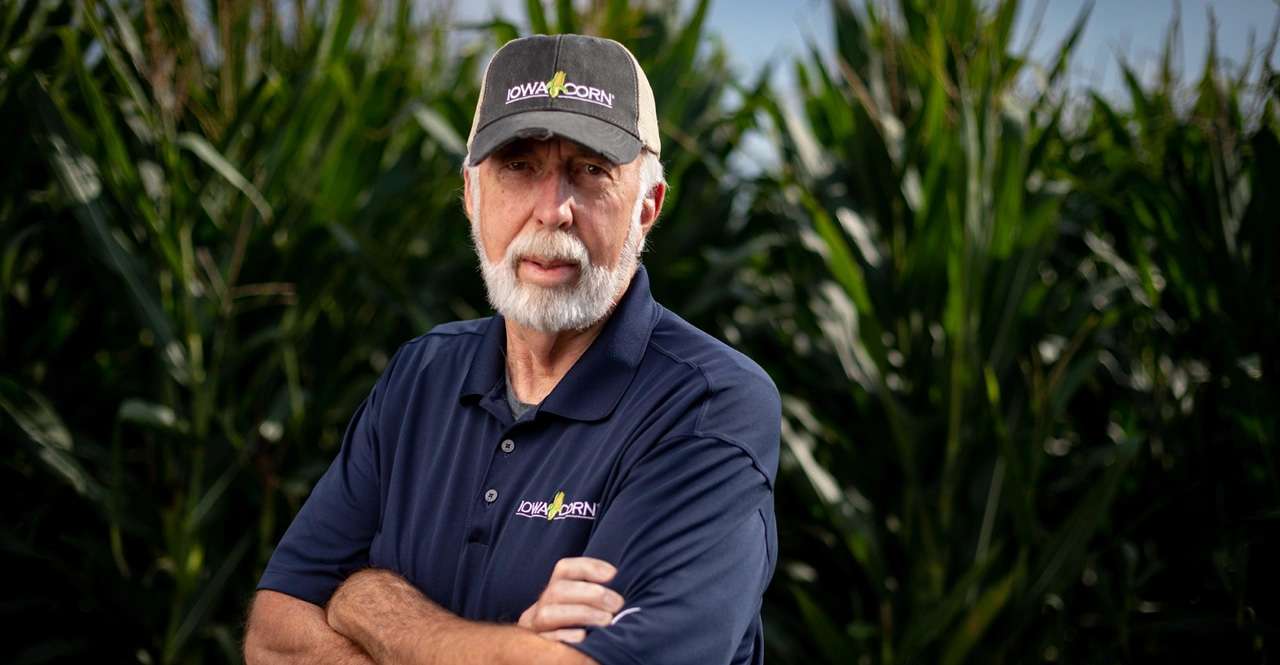Honorary Degree Recipient, Doctor of Science
Larry Buss

Larry Buss has the unique status of having pursued two highly successful—but distinctively different— careers simultaneously: farming and engineering. While he continues his farming operation, he has mostly retired from his engineering career, which culminated as Chief of Hydrologic Engineering for the U.S. Army Corps of Engineers in Omaha, NE. Larry is currently a licensed professional engineer, a certified flood plain manager, and a board-certified water resources engineer. He holds a bachelor’s degree in agricultural engineering from Iowa State University and a master’s degree in civil engineering from the University of Nebraska.
Driven by an unwavering determination to succeed, Larry has always set ambitious goals since his college years at Iowa State. He determined where he wanted to go with his dual careers in engineering and farming, made decisions quickly to support his goals, and worked tirelessly to achieve them.
After a stint with the U.S. Navy, working on nuclear submarines, Larry joined the U.S. Army Corps of Engineers, where he served as a water resources engineer for more than 40 years. Larry also began his farming career in 1972 with the purchase of 19 acres of land south of Missouri Valley, IA, that had five acres of alfalfa—no tractor or equipment, just a pickup truck, a vision, and a lot of ambition.
Larry has been persistent in expanding his farming operation, which today encompasses several thousand acres, grain elevators at two locations with more than 1.3 million bushels of grain storage, two companies (Mo Valley Grain Inc. and Buss Farms LLC), and a team of employees. His focus has always been on owning the land he farms and the facilities that support it.
Larry’s innovative approach to farming has set him apart as a leader in Iowa agriculture. He was a pioneer in adopting no-till farming practices in the highly erodible Loess Hills, significantly improving soil health and reducing erosion. Since 1985, he has continually practiced no-till farming on his home farm near Logan, IA. He has subsequently implemented this practice on all highly erodible land he farms, as well as on non-highly erodible land where it makes economic and agronomic sense. Additionally, he introduced cover crops to improve water quality and soil health and increase soil organic matter, and organized workshops to educate fellow farmers on these practices. A leader in pest management, Larry is also credited with implementing the Iowa Pest Resistance Management Program in Harrison County and across the state of Iowa.
Larry’s engineering acumen has been instrumental in flood mitigation. In 2011, as chair of the Missouri River Flood Fight Coalition, he spearheaded efforts that prevented more than $150 million in losses and safeguarded communities from flood damage. Since 2012, he has served as chair of the Rand Peterson Levee District Board of Trustees, responsible for operating and maintaining a levee that provides flood risk reduction from the Missouri River to parts of Harrison and Pottawattamie counties, U.S. Highway 30, the Union Pacific Railroad, Interstate Highway 29, three communities, and thousands of acres of farmland with rural residences. Because of his efforts and experience, that levee performed well during the Missouri River f loods of 2019 and 2024. His expertise in floodplain management and flood risk reduction has earned him national and international recognition, and he continues to be a vital resource in this field.
Larry’s dedication to agriculture and rural communities is reflected in his involvement with numerous organizations. He has held various leadership roles with the Iowa Corn Growers Association, the Iowa Corn Promotion Board, and the Iowa Master Farmers Association. His involvement with the U.S. Grains Council and the National Corn Growers Association has furthered the interests of Iowa’s agricultural community on a national and global scale.
